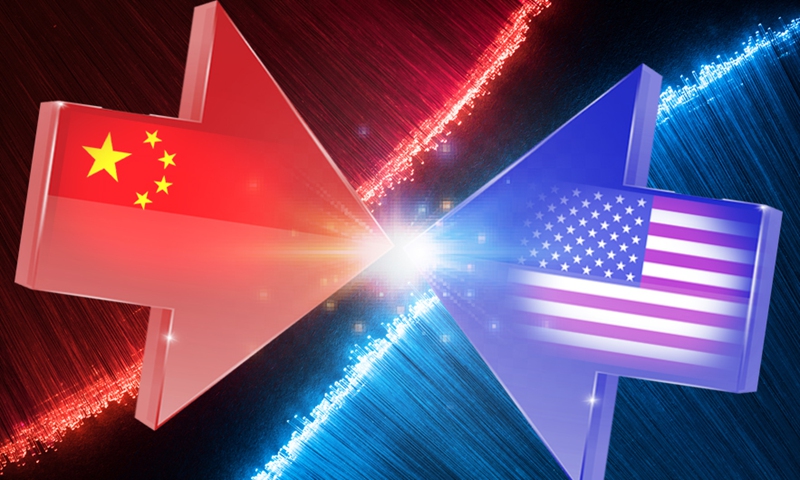US hostility toward China rooted in hegemonic struggle

Photo: GT
US Secretary of State Mike Pompeo's newest diatribe against China underscores the Cold War hysteria circulating in Washington. The fervor of right-wing ideological crusaders knows no bounds. Whether China is socialist or a Westernized democracy makes no difference to them.
The Trump administration's crusade against China is rooted in power struggles for maintaining hegemony. The US attempts to maintain global dominance by conjuring up an imagined rising so-called "Yellow Peril."
If China turned into a Western-styled "democracy" tomorrow, the US would not cease hostility unless China capitulated and became subservient to US hegemony. But even then the US would play a fear mongering race card against China.
In recent decades, US hegemonism has sought to place Washington at the center of a stratified international system dominated by US global leadership.
Today, however, the US is in relative decline and its hegemonic grip is weakened by evolving global multipolarity. Washington is losing confidence in a changing world and is compensating by an aggressive foreign policy.
US elites are in a quandary over how to maintain global leadership. The COVID-19 crisis on top of the worldwide economic slowdown raises questions about Washington's credibility and capacity.
On the one hand, to meet the challenge some experts argue for a revival of a US commitment to a liberal international order. On the other hand, hawkish experts argue for a policy of unrestrained great power competition.
But with either policy option, the hegemonic role of the US will be maintained, they all say. With both options, the US leads a bloc of democracies against so-called "revisionist" and "authoritarian" states, namely China and Russia.
The new cold war is still characterized by competing blocs. The desired result is an international system in which all states follow the Western model led by the US.
The world in this quasi-religious vision must be made safe for "Democracy," as US former president Woodrow Wilson once said. Washington promotes the fanciful notion that if all states were "democratic" there would be no wars.
A Westernized, "democratic" China is expected to take a subordinate place in the US dominated international order whether the system is on a liberal basis or a great power basis. Resistance to US leadership will be met with hostility unless Beijing capitulates to Washington's global leadership.
Capitulation requires Westernization and, therefore, the elimination of socialism with Chinese characteristics. This is made clear through statements from Vice President Mike Pence and Secretary of State Mike Pompeo attacking the Chinese model, its leadership, and its leading political party.
But Chinese experience shows that China's successful model of socialism with Chinese characteristics, modernized with reform and opening-up, science, technology, and innovation, makes for a strong and independent progressive state.
Various combinations of power, interest, ambition, and miscalculation, impact on international affairs. But diplomacy can adjust relations between states and avert war.
China regards the present trend as one of peace and development. China put forward the concept of a new type of major power relations in 2012. Neither President Barack Obama nor President Donald Trump had the vision to respond positively to this offer.
Washington's negative reaction is because the US seeks to maintain global hegemony. It is, therefore, hostile to any state that seeks sovereign independence - regardless of its model and internal system. In Washington's zero-sum thinking there can only be one dominant power, one "leader," which is the US.
If Democratic Party candidate Joe Biden wins the election, he would have a different style and no doubt moderate US rhetoric and policy. But US elites on a bipartisan basis still would seek to maintain hegemony.
China has no choice but to remain on guard. The US must reflect and change its confrontational policy.
The author is an educator and former senior professional staff member of the Senate Committee on Foreign Relations. opinion@globaltimes.com.cn